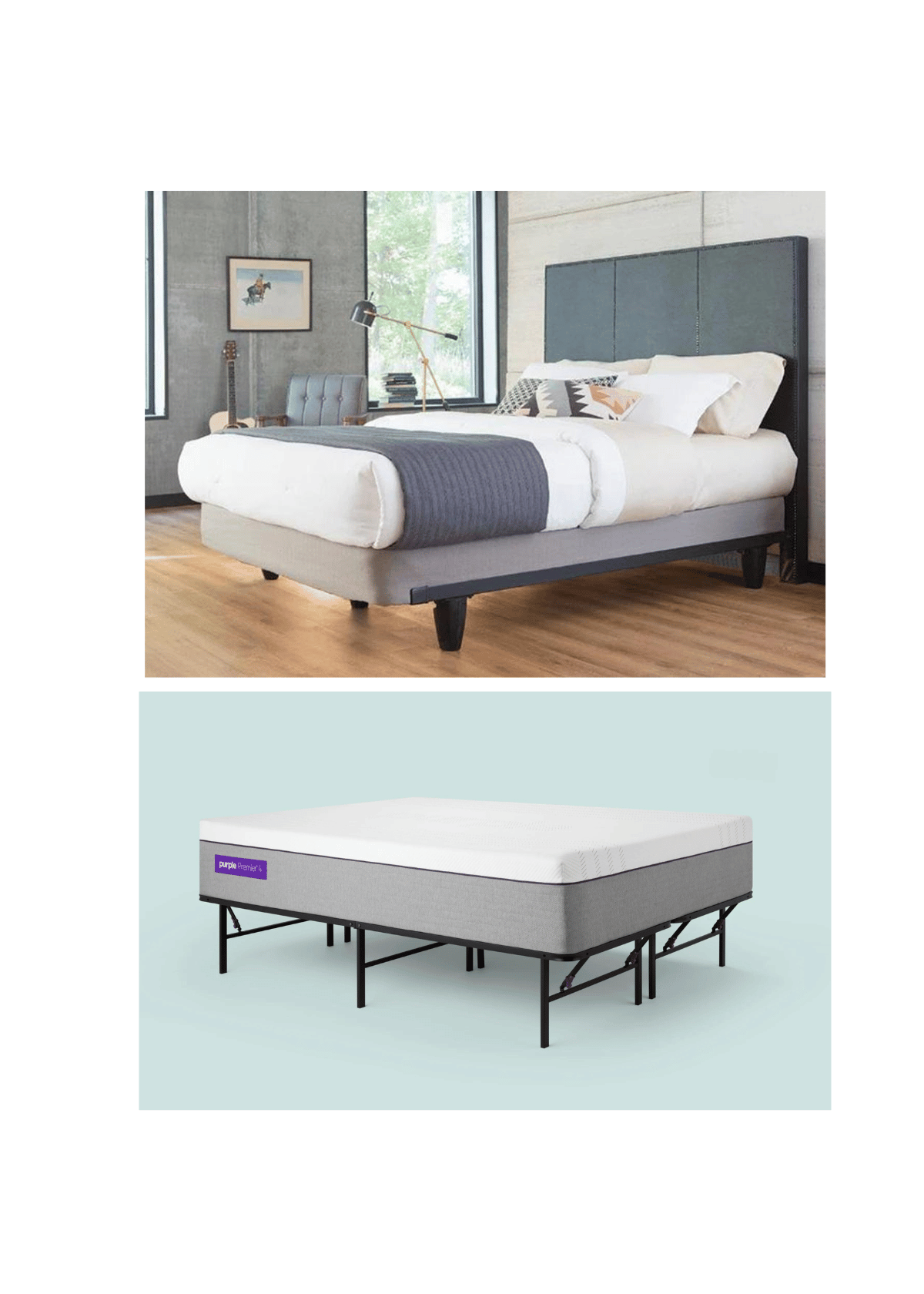Achieving enough quality sleep is essential for both mental and physical health.
Restful nights lead to energized and productive days, while poor sleep can result in fatigue, mood swings, and decreased performance.
Incorporating healthy sleep habits into your daily routine can significantly improve the quality of your rest and overall well-being.
Below are the top 10 tips for achieving restorative sleep and a bonus tip to improve your sleep hygiene.
🛌 Tip I. Establishing a Sleep Schedule and Sleep Hygiene

Regulate Your Body Clock
Sticking to a consistent sleep schedule is one of the most effective ways to improve sleep quality. Irregular sleep schedules can make falling asleep and maintaining restful sleep difficult.
Your body’s internal clock thrives on regularity, and going to bed and waking up at the same time every day helps regulate it.
Aim for at least seven hours of sleep each night to give your body and mind ample time to recharge. A consistent schedule also reduces the likelihood of sleep disruptions, which can impact productivity.
Create a Calming Routine
Creating a regular bedtime routine further enhances your sleep schedule. Engage in calming activities such as reading, meditating, or listening to soothing music to prepare your mind for rest.
Avoid stimulating activities like watching TV or scrolling through your phone, as these can interfere with your body’s ability to relax and wind down.
Maintain Consistency
Consistency is the cornerstone of good sleep hygiene. Try maintaining your usual sleep and wake times, even on weekends or holidays.
This helps regulate your circadian rhythm and ensures you wake up refreshed and ready for the day. Adapting to a set schedule might take time, but the long-term benefits outweigh the initial challenges.
Your Sleep Routine Actions:
- Set an alarm to wake up and remind yourself to start winding down for bed.
- Aim for seven to nine hours of sleep each night to meet your body’s needs.
- Avoid naps longer than 20 minutes daily to prevent sleep disruption.
- Track your sleep patterns with a journal to identify inconsistencies and adjust accordingly.
- Stick to the schedule even on weekends to maintain a steady sleep cycle.
💡 Tip II. Creating a Restful Sleep Environment
Transform Your Bedroom
You can transform your bedroom into a sleep haven to encourage a good night's sleep. A cool, dark, and quiet environment signals your brain that it’s time to sleep. Use blackout curtains to block out light and a white noise machine or earplugs to eliminate disruptive sounds.
These small changes can significantly improve the quality of your sleep. Your bedroom should be a sanctuary dedicated to rest, free from distractions.
Optimize Temperature
Temperature is another critical factor. Studies show that a cooler room, around 65 degrees Fahrenheit, promotes better sleep.
To enhance your comfort, choose breathable bedding materials that regulate body temperature, such as cotton or bamboo
Decluttering and keeping your bedroom clean can also create a calming atmosphere conducive to rest. A fresh and organized space signals your brain that it’s time to relax.
Personalize Your Space
It is essential to personalize your sleep environment to suit your preferences. If you like relaxing scents, consider using a lavender-scented spray or diffuser.
TInvest in a comfortable mattress and supportive pillows tailored to your sleep position to prevent discomfort and aches. These thoughtful additions enhance your overall sleep experience and help create a welcoming environment for rest.
Your Sleep Routine Actions:
- Use blackout curtains to block out light for a dark sleep environment.
- Keep the temperature around 65°F for optimal comfort and rest.
- Choose breathable bedding to regulate body temperature effectively.
- Eliminate noise with a white noise machine or earplugs.
- Declutter your space to create a serene and relaxing atmosphere.
🌟 Tip III. Managing Stimulants and Relaxants

Limit Harmful Substances
Be mindful of your consumption habits, as stimulants like caffeine and nicotine can interfere with your sleep. Limit these substances, especially in the afternoon and evening, to avoid disrupting your natural sleep cycle.
Alcohol, though it may seem relaxing, can impair sleep quality by interrupting restorative sleep stages. Staying vigilant about your daily intake can profoundly impact your ability to rest at night.
Choose Relaxing Alternatives
Opt for soothing alternatives like herbal teas or warm milk to help your body relax before bedtime. These beverages can signal your brain that it’s time to wind down. Similarly, avoid eating heavy meals late at night.
Digestive discomfort can keep you awake, so aim to finish eating at least two to three hours before bed. Light snacks, like a banana or yogurt, are more appropriate if you’re slightly hungry.
Establish Relaxing Habits
Establishing a routine that includes relaxing activities before bed can further reduce the effects of stimulants.
Deep breathing, meditation, or gentle yoga can help prepare your mind and body for sleep. Such habits train your body to associate these activities with rest, making it easier to transition to sleep mode.
Your Sleep Routine Actions:
- Limit caffeine intake to the morning to prevent interference with sleep.
- Avoid heavy meals within three hours of bedtime to promote comfort.
- Opt for herbal teas like chamomile to encourage relaxation.
- Reduce alcohol consumption to improve sleep quality and continuity.
- Incorporate calming activities like meditation to wind down effectively.
🎯 Tip IV. Managing Stress and Anxiety
Address Your Concerns

Stress and anxiety are common causes of sleepless nights. Addressing your worries before bedtime can help you relax and fall asleep more easily.
Writing down your concerns in a journal or creating a to-do list for the next day can help clear your mind and reduce stress. Tackling these thoughts earlier in the day also frees up your evenings for relaxation.
Practice Relaxation Techniques
Relaxation techniques are valuable tools for combating anxiety. Deep breathing exercises, progressive muscle relaxation, or mindfulness meditation can help calm your thoughts and prepare your body for rest.
Incorporating these practices into your nightly routine can create a sense of stability and peace. Over time, these techniques become second nature, making relaxation a seamless part of your evening.
Protect Your Evenings
Establishing boundaries is also helpful in preventing stress from overwhelming your evenings. Please check work emails or engage in stressful conversations close to bedtime.
Protecting this time for relaxation ensures that your mind is ready for rest. Make evenings a sanctuary for calm, where unwinding becomes the priority.
Your Sleep Routine Actions:
- Use a journal to write down worries and tasks, clearing your mind.
- Practice deep breathing exercises to relax your body and mind.
- Try mindfulness meditation to focus on the present and reduce stress.
- Set boundaries to minimize work-related stress in the evening.
- Establish a calming routine to transition into a peaceful state before bed.
🔑 Tip V. Getting Active and Healthy

Exercise to Fall Asleep Easily
Regular physical activity is one of the best ways to improve sleep quality. Exercise helps regulate your body’s internal clock, making falling and staying asleep easier.
Morning or early afternoon workouts are ideal, as vigorous activity too close to bedtime can stimulate the body. Physical exertion earlier in the day ensures a sense of fatigue by evening.
Reduce Stress Through Movement
Exercise also reduces stress and anxiety, common barriers to good sleep. Activities like yoga, stretching, or walking are particularly effective for promoting relaxation.
Spending time outdoors during the day can further enhance your sleep-wake cycle by increasing your exposure to natural light. Nature’s influence can reset your body’s clock and promote better sleep.
Stay Consistent
Consistency is crucial when incorporating exercise into your routine. Aim for at least 30 minutes of moderate physical activity most days of the week to reap the sleep-related benefits.
Make it an enjoyable part of your day by choosing activities you love, ensuring long-term adherence.
Your Sleep Routine Actions:
- Exercise earlier in the day to avoid overstimulation at night.
- Incorporate yoga or stretching to relax your muscles and mind.
- Spend time outdoors to regulate your circadian rhythm with natural light.
- Reduce stress through physical activity, improving overall sleep quality.
- Aim for 30 minutes of moderate exercise daily for best results.
🌙 Tip VI. Monitoring and Maintaining Sleep Health
Seek Help From a Sleep Medicine Specialist

If you have problems despite your best efforts, please consult a healthcare provider or a sleep medicine specialist.
Sleep disorders, such as insomnia, sleep apnea, or restless leg syndrome, may require professional evaluation and treatment. Addressing these issues promptly can prevent further health complications and enhance overall quality of life.
Track Your Sleep
Tracking your sleep habits is a practical first step toward identifying patterns and triggers. Use a sleep diary to log your bedtime, wake time, and any disturbances during the night.
This information can be invaluable when seeking professional advice. Apps and wearable devices can provide additional insights, helping you understand your sleep cycles.
Trouble Sleeping? Prioritize Sleep Health
Don’t hesitate to seek help if you consistently have trouble sleeping. Restful nights are essential for overall health and well-being; professional guidance can make a significant difference. Make sleep health a cornerstone of your wellness strategy to ensure long-term benefits.
Your Sleep Routine Actions:
- Keep a sleep diary to track patterns and identify disruptions.
- Consult a doctor if sleep issues persist despite lifestyle changes.
- Evaluate underlying conditions like sleep apnea or insomnia.
- Prioritize sleep health as part of your overall wellness strategy.
- Seek professional help for tailored solutions to your sleep concerns.
🧠 Tip VII. Limiting Screen Time Before Bed

Understand the Impact of Blue Light
Blue light from electronic devices can suppress melatonin production, delaying your body’s natural readiness for sleep. This is why it is essential to limit screen time before bed. Electronic distractions keep your mind active, making relaxing and transitioning into sleep mode harder.
Replace Screens with Relaxing Activities
You can substitute screen time with calming alternatives like reading a physical book, journaling, or relaxing music. These activities prepare your mind for rest and promote a sense of calm and relaxation. Make your evenings a time for mindfulness and disconnection from digital distractions.
Use Screen-Specific Tools
If avoiding screens entirely isn’t feasible, consider using tools like blue light-blocking glasses or activating the night mode on devices. These adjustments reduce the negative impact of blue light exposure while allowing you to use your devices sparingly in the evening.
Your Sleep Routine Actions:
- Limit screen use at least an hour before bed to promote natural sleep.
- Replace screens with relaxing activities like reading or journaling.
- Use blue light filters or glasses to minimize melatonin suppression.
- Designate screen-free zones like your bedroom to encourage rest.
- Focus on mindfulness to reduce stress and encourage relaxation.
📌 Tip VIII. Establishing a Relaxing Bedtime Routine

Set the Mood for Sleep
A consistent bedtime routine signals your body that it’s time to wind down. Simple rituals like taking a warm bath, dimming the lights, or practicing gentle stretches can create a relaxing environment. These habits prepare both your body and mind for restful sleep.
Incorporate Calming Techniques
Techniques like deep breathing exercises, guided meditation, or progressive muscle relaxation can help you transition into a calm state. These practices reduce stress levels and promote a sense of peace, making it easier to fall asleep.
Make It a Daily Habit
Consistency is key in bedtime routines. Performing calming activities each night trains your body to associate them with sleep. Over time, this routine becomes a natural cue for your body to prepare for rest.
Your Sleep Routine Actions:
- Dim the lights to signal your body that it’s time for rest.
- Take a warm bath to relax your muscles and ease tension.
- Practice breathing exercises to calm your mind and reduce stress.
- Engage in mindfulness practices to center yourself before bed.
- Stick to your routine daily for long-term sleep benefits.
✅ Tip IX. Optimizing Your Diet for Sleep
Eat Sleep-Friendly Foods
Certain foods can promote better sleep by supporting melatonin production and relaxation. Almonds, bananas, and cherries contain nutrients that help regulate the sleep-wake cycle. Incorporating these foods into your diet can enhance your sleep quality.
Avoid Late-Night Indulgences
Late-night heavy, sugary, or spicy snacks can disrupt sleep. They may cause discomfort or indigestion, leaving you awake in bed. Opt for light, easily digestible options if you're hungry before bed.
Stay Hydrated. Wisely
Hydration is essential, but consuming too many liquids close to bedtime can lead to frequent trips to the bathroom. Balance fluid intake throughout the day and reduce it in the evening to avoid sleep interruptions.
Your Sleep Routine Actions:
- Incorporate melatonin-rich foods like cherries into your evening meals.
- Avoid caffeine and sugary treats late in the day.
- Opt for light snacks if you’re hungry close to bedtime.
- Maintain hydration during the day but limit fluids at night.
- Create a balanced diet to support overall sleep health.
📖 Tip X. Listening to Your Body’s Signals
Recognize Sleep Cues
Your body provides natural signals when it’s time for sleep. Yawning, heavy eyelids, and a general tiredness indicate your body is ready for rest. Paying attention to these cues can help you avoid unnecessary restlessness.
Avoid Forcing Sleep
If you’re not feeling tired, don’t force yourself to sleep. Engaging in a relaxing activity until you naturally feel sleepy can prevent frustration and create a more positive association with bedtime.
Strengthen Sleep-Wake Cycles
Consistency with sleep timing helps reinforce your body’s internal clock, ensuring you feel refreshed and energized when you wake up. Regular sleep patterns lead to better overall health and well-being.
Your Sleep Routine Actions:
- Pay attention to natural sleep cues like yawning or fatigue.
- Engage in relaxing activities if you’re not ready to sleep.
- Avoid forcing sleep to prevent negative associations with bedtime.
- Strengthen sleep-wake cycles by maintaining a regular schedule.
- Recognize when to rest to support better sleep health.
🤖 Bonus Tip: Embrace Sleep Technology
Leverage Smart Devices
While excessive technology can hinder sleep, certain smart tools can enhance it. Sleep trackers, white noise machines, and smart lighting systems can help optimize your sleep environment and routines.
Use Sleep-Enhancing Tools
Smart alarm clocks that wake you during light sleep phases can make mornings feel more refreshing. Pair these with wearable sleep trackers to gain insights into your sleep patterns.
Balance Technology Use
Use sleep technology sparingly and intentionally. Ensure that these tools complement rather than disrupt your sleep hygiene efforts. Focus on finding the balance that works for you.
Your Sleep Routine Actions:
- Incorporate sleep trackers to monitor your habits and patterns.
- Use white noise machines to mask disruptive sounds.
- Optimize lighting with smart bulbs that mimic natural cycles.
- Try smart alarms for gentler, more effective wake-ups.
- Balance technology used to enhance sleep without overreliance.
🏁 Conclusion
Improving your sleep habits takes time and dedication, but the benefits are worth the effort. These top 10 sleep tips and bonus strategies can help you have restful nights and productive days. Prioritize your sleep, and everything else will follow.
FAQs
How can I fall asleep faster?
Establish a consistent sleep routine, including a fixed wake-up time, and limit cell phone use before bed. Try quiet music, avoid alcohol, and maintain a comfortable temperature. Even short, regular exercise sessions can help you fall asleep much faster.
Why is deep sleep important?
Deep sleep restores the brain and body and promotes good health. Insufficient sleep can disrupt sleep stages, raising risks like heart disease. Studies show older adults benefit from natural sunlight and a stable bedroom environment to maintain healthy, deep sleep patterns.
What if sleep issues persist?
Consider a sleep study if sleep problems persist for several weeks despite a routine. The Sleep Foundation and National Institute suggest examining diet, stress, and digital clock habits. If nothing improves, consult a professional for melatonin supplements or therapy.
Does exercise help me sleep better?
Yes, regular or daily exercise can promote deeper sleep. It also positively affects mood and helps you maintain a consistent sleep routine. However, avoid high-intensity workouts close to bedtime, as they could disrupt sleep rather than improve it.
Should I avoid bright light before bed?
Avoiding bright lights at night can help you fall asleep faster. Blue screens on cell phones may disrupt sleep by affecting melatonin. Dim the lights before bedtime, and consider using earplugs or quiet music for a calm transition.







